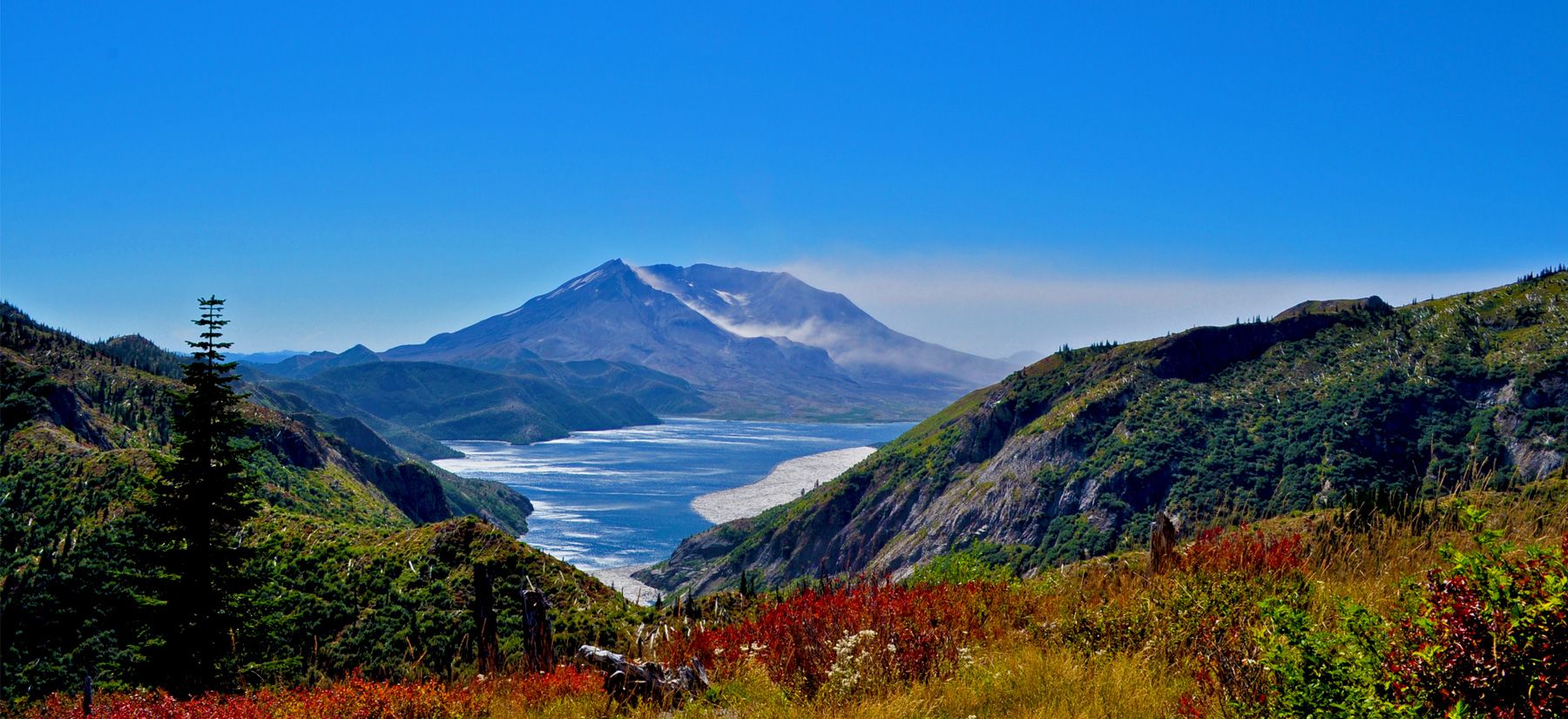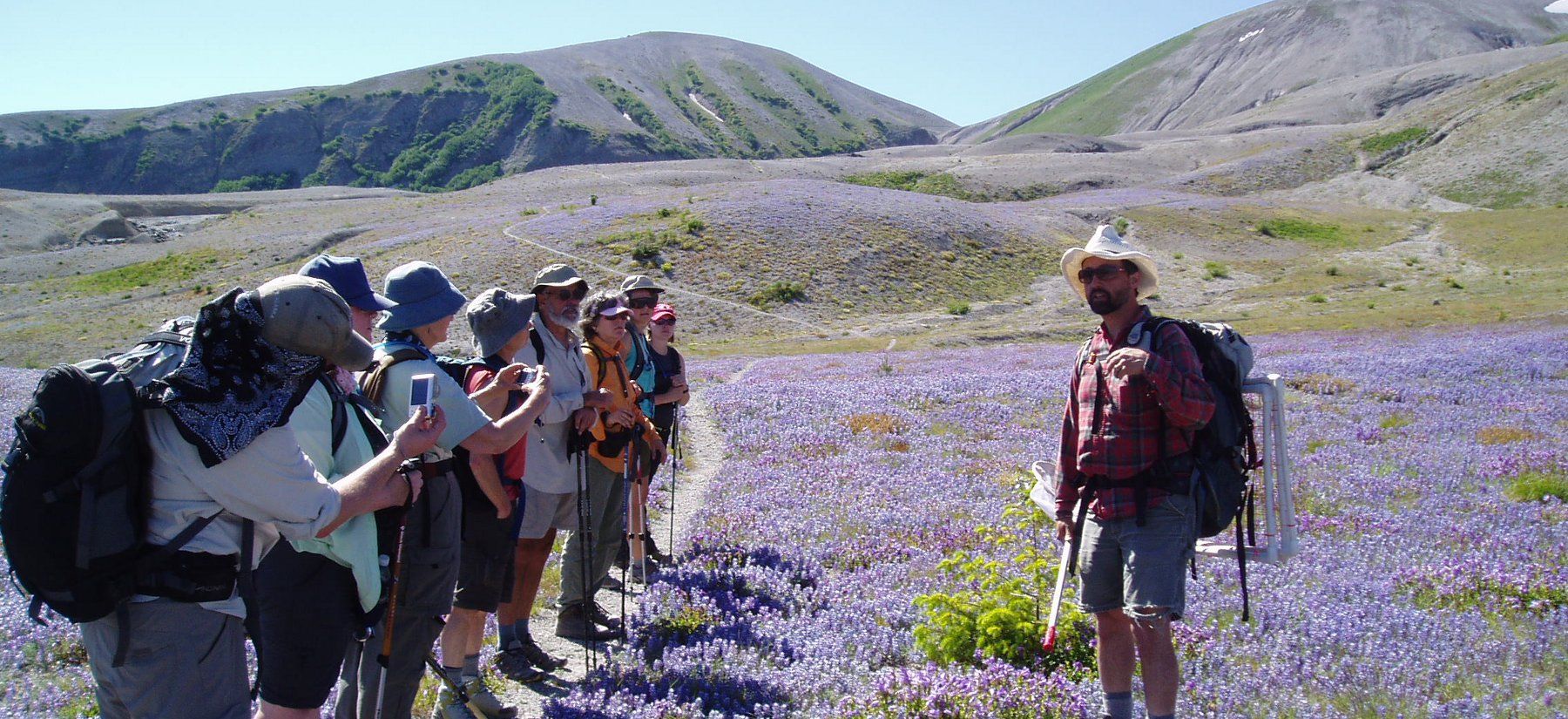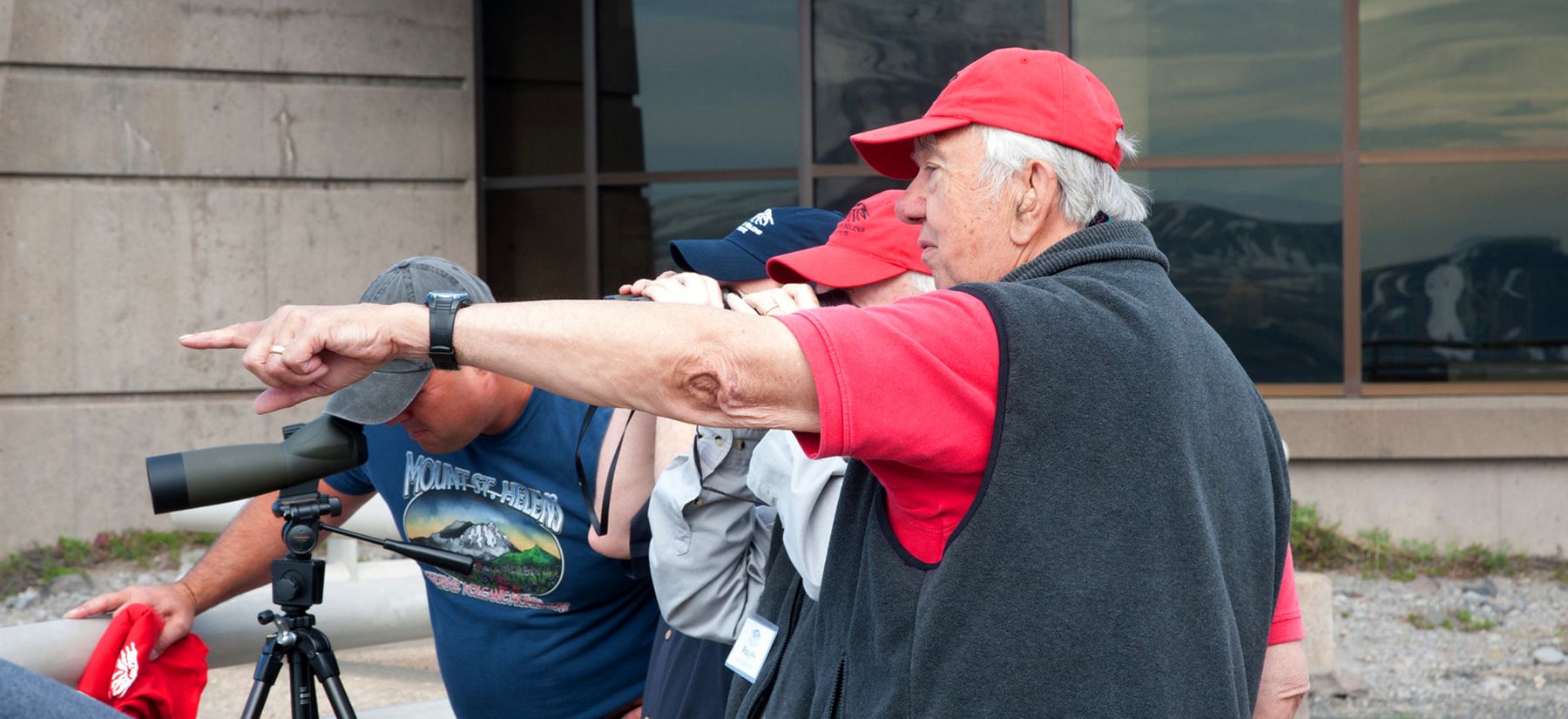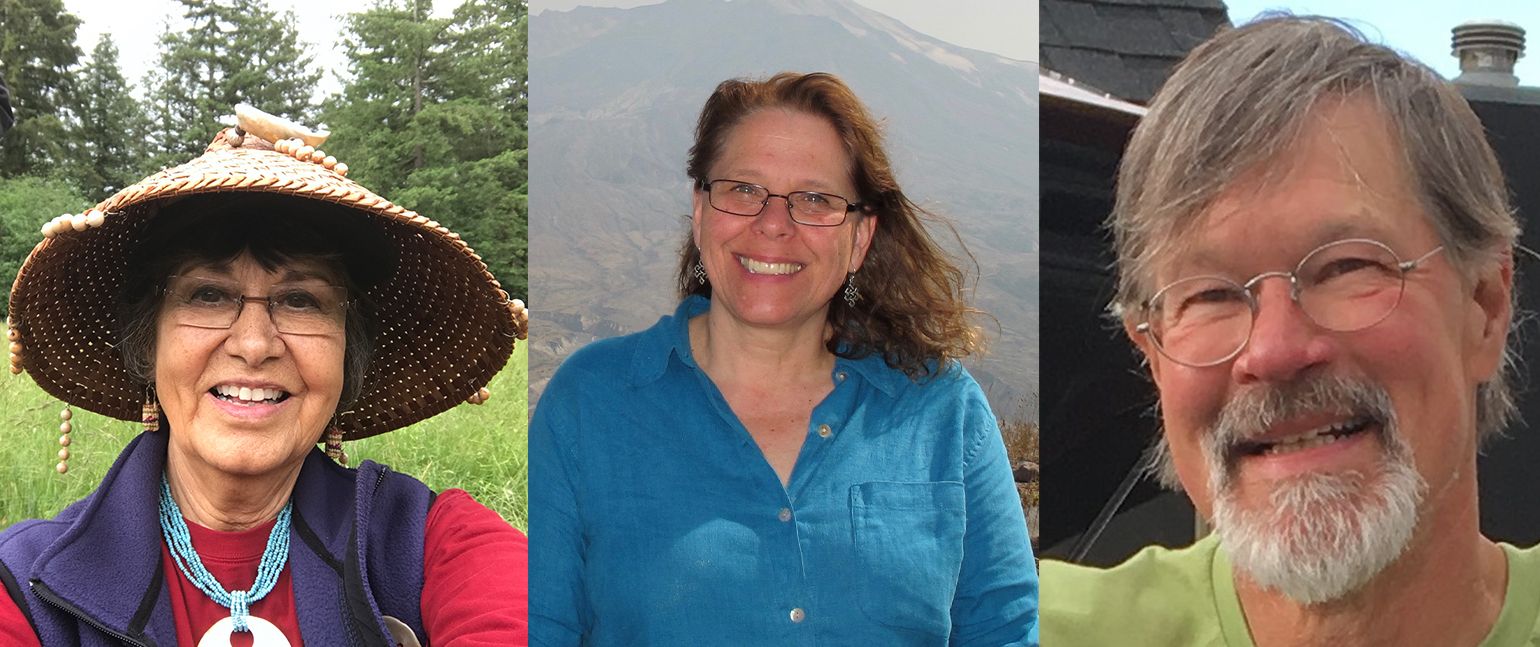-
 Explore with Us
Explore with UsSign up for one of our guided programs to explore amazing trails and geologic features with an expert guide from the Mount St. Helens Institute!
-
 Learn with Us
Learn with UsWe offer a variety of programs for people of all ages to learn about the wild wonders of Mount St. Helens.
-
 Volunteer with Us
Volunteer with UsWe offer a wide variety of volunteer opportunities for Mount St. Helens enthusiasts, both on and off the mountain.
Posted on 06/06/2025
Return To List
ONLINE - What Does Mount St. Helens Mean to You?
Monday, May 11, 2020 6:00 pm - 8:00 pm

Location: https://www.facebook.com/mshinstitute/
Description: This event will be held via Facebook live stream. Simply log onto our page at 6 PM to participate. A Facebook account is not required to watch this broadcast.
https://www.facebook.com/mshinstitute/
Event begins at 6:00 PM PDT.
BYOB
Suggested donation $10
Whether you were around for the 1980 eruption or not even born yet, you've probably seen, hiked near or even climbed Mount St. Helens. But have you thought about what the volcano—the most active of all the Cascade peaks—means for your life? Come hear different perspectives by people who have had a long, close relationship with the volcano: US Forest Service archeologist Rick McClure, writer Christine Colasurdo, and Spiritual Leader of the Cowlitz Indian Tribe, Tanna Engdahl. And then offer your own ideas and reflections at the end of the evening!
Writer and calligrapher Christine Colasurdo grew up hiking, berry-picking and camping with her family at Spirit Lake, on the north side of Mount St. Helens. As a teenager she worked at Harmony Falls Lodge, on the lake's east side. She was hoping to return to work at the lodge when the volcano erupted in 1980. Her nonfiction book, Return to Spirit Lake: Life and Landscape at Mount St. Helens, was selected as a "Washington Reads" book. She has given talks in California, Oregon and Washington and has volunteered for years to protect the mountain. In 2015 she self-published a chapbook of her poem, "Cascade Manifesto," which is included in a forthcoming book of poems. She is also working on a second nonfiction book about Mount St. Helens. She teaches creative writing and calligraphy at the Multnomah Arts Center in Portland.
Rick McClure is the former Heritage and Tribal Programs Manager for Gifford Pinchot National Forest. He first climbed Mount St. Helens (Lawetlat'la) in 1975. Educated as an archaeologist and anthropologist, his primary Forest Service responsibilities involved identification, documentation, and protection of archaeological, historical, and traditional cultural resources within the national forest. During his career he served similar roles for the Columbia River Gorge National Scenic Area and the Mount Hood National Forest. Rick retired from the Forest Service in 2014, since then serving as a consultant, spending more time out on the trail, and enjoying grandchildren. Rick and his wife Cheryl, authors of "For the Greatest Good: Early History of Gifford Pinchot National Forest" (NW Interpretive Association) live in Trout Lake, Washington.
Tanna Engdahl is an Elder and Spiritual Leader in the Cowlitz Tribe of Indians, State of Washington. In her early years, she served as Vice-Chairman of her Tribe during a time she was also the first Native American television reporter in a major market, KIRO-TV in Seattle.
She left the newsroom to engage in a thirty-year career in public land agencies: Bureau of Indian Affairs, Bureau of Land Management and the National Park Service. During that time, she was selected to a Federal Leadership Academy and spent many years in management positions.
In this role, she encouraged Federal sensitivity to tribal sacred sites and was in the forefront of a movement to establish Indian cultural committees within Government. In retirement, she is a public speaker, serves on the Board of the Friends of the Ridgefield National Wildlife Refuge, is deeply involved in community activities, and fulfills tribal ceremonial duties as well as officiating at weddings and life celebrations.
https://www.facebook.com/mshinstitute/
Event begins at 6:00 PM PDT.
BYOB
Suggested donation $10
Whether you were around for the 1980 eruption or not even born yet, you've probably seen, hiked near or even climbed Mount St. Helens. But have you thought about what the volcano—the most active of all the Cascade peaks—means for your life? Come hear different perspectives by people who have had a long, close relationship with the volcano: US Forest Service archeologist Rick McClure, writer Christine Colasurdo, and Spiritual Leader of the Cowlitz Indian Tribe, Tanna Engdahl. And then offer your own ideas and reflections at the end of the evening!
Writer and calligrapher Christine Colasurdo grew up hiking, berry-picking and camping with her family at Spirit Lake, on the north side of Mount St. Helens. As a teenager she worked at Harmony Falls Lodge, on the lake's east side. She was hoping to return to work at the lodge when the volcano erupted in 1980. Her nonfiction book, Return to Spirit Lake: Life and Landscape at Mount St. Helens, was selected as a "Washington Reads" book. She has given talks in California, Oregon and Washington and has volunteered for years to protect the mountain. In 2015 she self-published a chapbook of her poem, "Cascade Manifesto," which is included in a forthcoming book of poems. She is also working on a second nonfiction book about Mount St. Helens. She teaches creative writing and calligraphy at the Multnomah Arts Center in Portland.
Rick McClure is the former Heritage and Tribal Programs Manager for Gifford Pinchot National Forest. He first climbed Mount St. Helens (Lawetlat'la) in 1975. Educated as an archaeologist and anthropologist, his primary Forest Service responsibilities involved identification, documentation, and protection of archaeological, historical, and traditional cultural resources within the national forest. During his career he served similar roles for the Columbia River Gorge National Scenic Area and the Mount Hood National Forest. Rick retired from the Forest Service in 2014, since then serving as a consultant, spending more time out on the trail, and enjoying grandchildren. Rick and his wife Cheryl, authors of "For the Greatest Good: Early History of Gifford Pinchot National Forest" (NW Interpretive Association) live in Trout Lake, Washington.
Tanna Engdahl is an Elder and Spiritual Leader in the Cowlitz Tribe of Indians, State of Washington. In her early years, she served as Vice-Chairman of her Tribe during a time she was also the first Native American television reporter in a major market, KIRO-TV in Seattle.
She left the newsroom to engage in a thirty-year career in public land agencies: Bureau of Indian Affairs, Bureau of Land Management and the National Park Service. During that time, she was selected to a Federal Leadership Academy and spent many years in management positions.
In this role, she encouraged Federal sensitivity to tribal sacred sites and was in the forefront of a movement to establish Indian cultural committees within Government. In retirement, she is a public speaker, serves on the Board of the Friends of the Ridgefield National Wildlife Refuge, is deeply involved in community activities, and fulfills tribal ceremonial duties as well as officiating at weddings and life celebrations.
